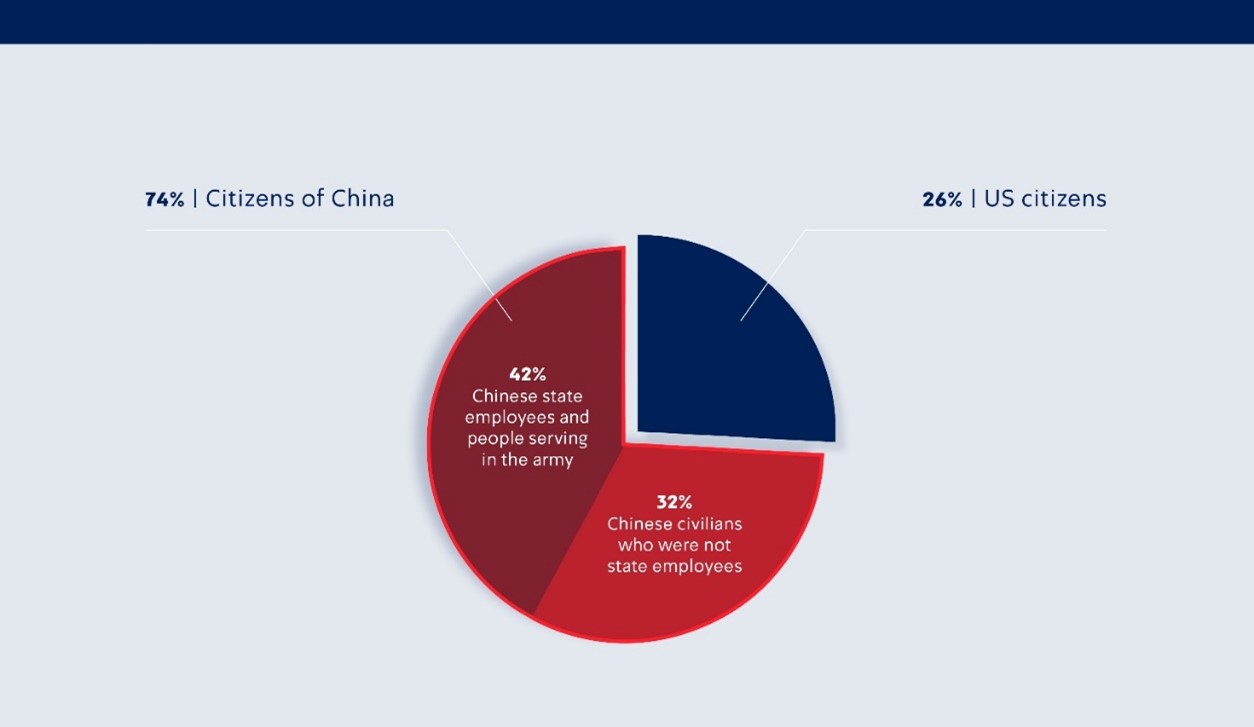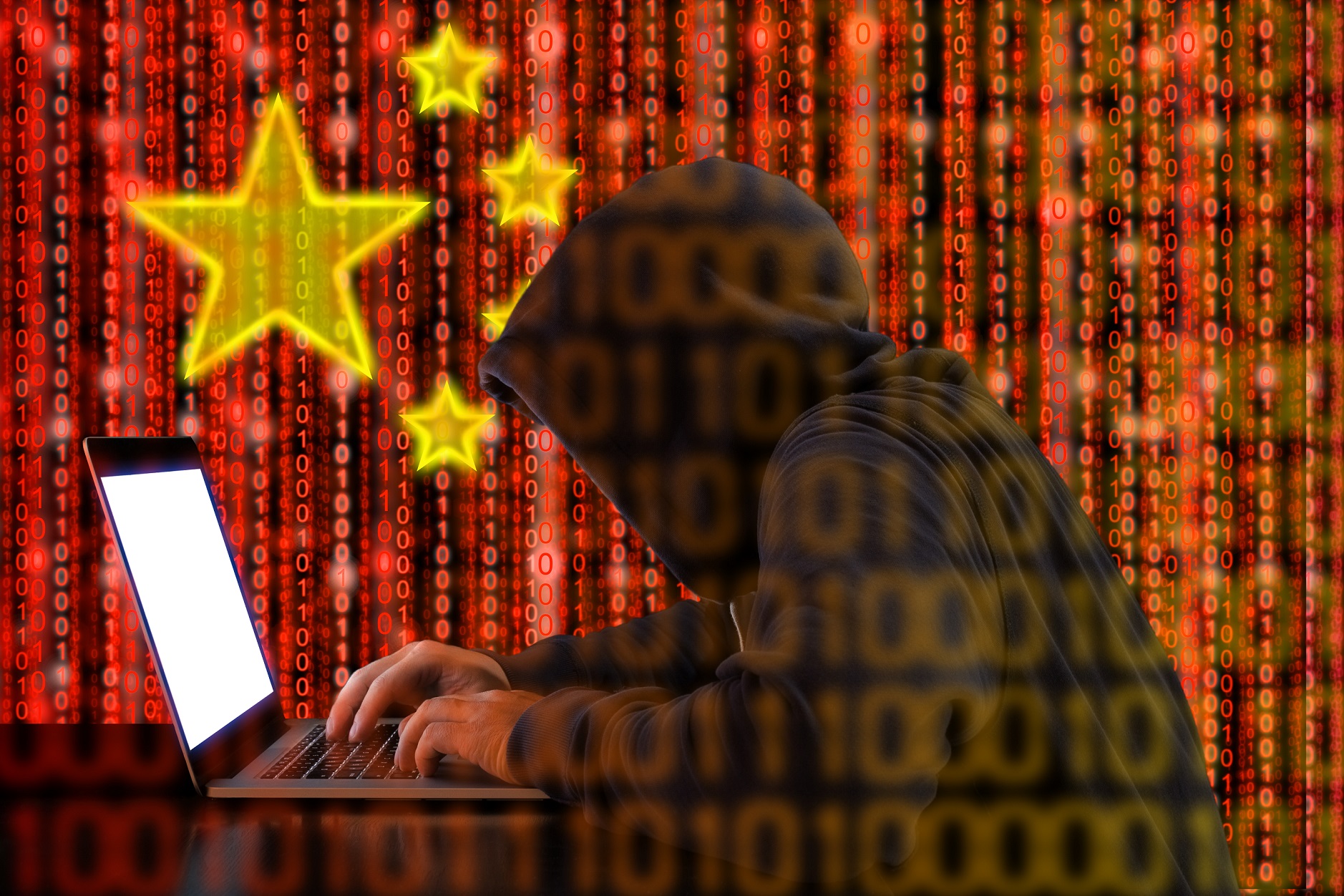Publications
INSS Insight No, 1560, February 20, 2022
In July 2021 the American think tank CSIS published a report detailing espionage activity by Chinese intelligence in the United States, aimed at targets in government, defense, and civilian sectors. The espionage efforts included the extensive use of governmental, political party, business, and academic bodies from China. It is highly likely that China’s espionage efforts, are also underway in Israel, which is seen by China as a leading technological power. Israel’s advanced capabilities, in particular, regarding elite technology, cyber, medicine and agriculture, have the potential to contribute to almost every aspect of China’s buildup plans. Consequently, it is imperative to become apprised of China’s patterns of intelligence activity and to reduce the level of exposure of targets in Israel to these efforts.
China's 14th five-year plan for the years 2021-2025 outlines its main strategic objectives and strives for technological and economic independence, while reducing its dependence on the countries of the world. The Made in China 2025 plan defines objectives for launching China toward its becoming a major technological and economic power, and defines ten sectors in which it must become a world leader, including: information technology, 5G networks, electric vehicles, "new materials," green energy, robotics, medical and agricultural equipment, and aviation. Reports from the United States and from many other countries reveal that alongside overt relations and measures, China employs covert and concealed tools for information gathering, and combines civilian partnerships with diverse intelligence and espionage activity by its intelligence agencies. The Chinese national espionage and information gathering effort includes the extensive use of governmental, party, business, and academic bodies as well as private individuals. This is a systematic and long-term effort in the service of China's strategic objectives to achieve technological superiority, strengthen its military power, and create dependence and influence among foreign countries and elites. China's methods of operation – in the UK, Germany, Australia, and elsewhere – are similar, with the necessary adaptations to the local conditions in each country. These insights also have implications for Israel.
Chinese Espionage in the United States
In July 2021 the Center for Strategic and International Studies (CSIS) published a report on the patterns of operation and espionage methods of Chinese intelligence in the United States. The report by the American think tank refers to some 160 espionage incidents that occurred between 2000 and 2021, whose details were made public. The report excludes additional espionage incidents against American targets and objectives in foreign territories, and 1,200 alleged incidents that were suspected of theft of intellectual property from the United States. The report emphasizes a significant rise in espionage activity in the United States beginning in 2010, with 76 percent of the incidents documented in the decade following and only about a quarter in the decade prior (Figure 1). This trend follows the appointment of Xi Jinping as the General Secretary of the Chinese Communist Party, in 2013, when subsequently 84 incidents were documented.

Figure 1. Chinese Espionage Activity in the United States since 2000 | Source: CSIS
The targets and methods of the espionage were diverse. Most of the activities were directed toward governmental institutions, including the White House, governmental bodies (the State Department, Department of Commerce, Department of Defense, Homeland Security, Department of Energy, and Department of Labor), military branches, intelligence agencies (CIA, FBI, DIA), and the National Aeronautics and Space Administration (NASA), as well as leading defense industries (Lockheed Martin, Boeing, and Raytheon). Of the espionage activities, 34 percent aimed to attain military technology, 51 percent aimed to attain technology for civilian uses, and the remaining 15 percent aimed to attain information on governmental agencies and politicians (Figure 2).

Figure 2. Purpose of espionage activities documented in the United States
Of the civilian targets (Figure 3), the report cites hi-tech, energy, the automotive and paint industry, universities and research institutes, aviation, health, communications, the press, and finally, political figures (candidates for the United States presidency, Senate, and additional politicians).

Figure 3. Espionage in the Civilian Sector
The report shows that Chinese intelligence has adopted diverse methods of operation to achieve its objectives in the United States. A noticeable effort was made to recruit and use figures from government, industry, and academia to gather and obtain information. Some of those involved were aware from the initial contact of the espionage activity and its implications, while others were recruited through trickery and deception, and were gradually "brought down." Chinese intelligence exploited possibilities for cooperation in the business and civilian sector to create ventures and companies with joint American-Chinese ownership for the purpose of gaining access to valuable knowledge and influence. Another primary method was attacking targets in the cyber realm and attaining access to computer networks, databases, development and procurement plans, and classified projects. Most of those accused in the espionage incidents surveyed in the report were citizens of China (74 percent), of whom 42 percent were state employees or served in the army, and 32 percent did not have any organizational affiliation to the government or the military. Twenty-six percent of those accused of espionage and assisting China were United States citizens (Figure 4).

Figure 4. Perpetrators of the espionage activities in the US
Chinese Espionage in Israel?
Israel is seen by China as a leading technological power. Israel's advanced capabilities in elite technology, cyber, medicine, agriculture, and more have the potential to contribute technologically to almost every aspect of China's buildup plans. Thus, Israel is an attractive source of technologies needed in China, as explicitly expressed by the Comprehensive Partnership for Innovation signed between the countries in 2017. Consequently, alongside the overt and agreed-upon activity, it is likely that China's intelligence agencies are working in Israel to attain its objectives in espionage efforts, as well as in other countries of value to it. As in the United States, it cannot be ruled out that government ministries, defense industries, and civilian companies in Israel have been attacked in the service of China's intelligence objectives. It is also likely that a substantial focus of interest in the eyes of Chinese intelligence is the complex system of relations between Israel and its ally, the United States.
The security establishment and the Israeli Defense Forces (IDF) are likely a target of said Chinese intelligence efforts, both in themselves and considering their deep connections with their counterparts in the United States. The object
s of these efforts would include major weapon systems in Israel that are developed in cooperation with the United States or produced by it, with some of the Israeli industries having subsidiaries in the United States, while others produce components that are integrated in American weapon systems. It is likely that advanced Israeli military technology designated for export is also a target of Chinese intelligence activity, including within the territories of the countries that have acquired it.
As in other advanced countries, it is likely that in Israel too, academia is an attractive target for Chinese intelligence, due to the sector’s numerous partnerships with the security establishment, as well as with institutions in China, including joint research and researcher exchanges. Access to academic information networks, studies, leading researchers, and position holders, and especially those involved in defense research and development is relatively simple. According to the intelligence gathering methods documented in the United States, Israel is quite exposed to cyberattacks that aim to steal knowledge. This is due to the extensive use of computers and digital information, alongside well-established communications infrastructure in Israel, as well as the relative ease of attaining remote access, with little risk to attackers. However, espionage based on Chinese citizens is presumably less common in Israel than in the United States, with its large population of Chinese citizens (studying, teaching and working), along with a large population of Americans of Chinese origin, which is a target of China's efforts.
Over the years, Israel has officially refrained from accusing China or other foreign powers of espionage in its territory. The public information on China's intelligence efforts in Israel stems chiefly from publications originating in commercial and foreign sources. In August, the international cyber company FireEye revealed that dozens of private and governmental bodies in Israel from diverse sectors were subject to a cyberattack coordinated by an attack group, whose source is likely in China. The purpose of these attacks was technological, business, and industrial espionage. The company noted in its announcement that the incident was investigated in cooperation with the authorities in Israel, although official Israeli sources did not relate to the incident and its ramifications.
The CSIS report does not directly discuss foreign investments, but they could also serve as a platform for attaining technology and for espionage through involvement in establishing and especially operating advanced, networked infrastructure projects. The Advisory Board for Evaluating National Security Aspects of Foreign Investments, which was established by virtue of a decision by the political-security cabinet in October 2019, also aims to address such an intelligence threat, but its powers ae limited to areas that are subject to regulation, and it is not authorized to examine the security consequences of foreign investments in the private sector.
Conclusion and Recommendations
China is not an enemy of the State of Israel, and the bilateral economic relations have important advantages. However, China is openly striving to become a leading global power, and it is carrying out extensive efforts to attain the technologies it needs in methods with varying legitimacy. China's methods of operation and intelligence and espionage capabilities, as documented abroad, also pose a significant challenge to Israel, as an attractive target and a source of advanced technology.
There are few real public indications of Chinese espionage in Israel, but it is likely that the intelligence community in Israel sees a broader and deeper picture. It should be a working hypothesis that China's efforts in Israel to advance its economic and technological objectives resemble those that it employs in other advanced countries, and that they are carried out in similar patterns of operation, with local adaptations. Taking into account lessons from other countries, it is possible to estimate the challenge to Israel, its level of exposure, and the necessary response. The intelligence threat to the military-industrial system, with an emphasis on its relations with the United States, is especially significant, and demands protection and ensuring the highest existing level of response, while closely cooperating and coordinating with the security agencies in the United States. In addition, it is important to increase the resilience of governmental, industrial, civilian, and academic systems to foreign intelligence activity, which entails strategic and military risks and the loss of intellectual capital and technology, along with business and economic damage.
A first essential step for coping with the challenge is increasing awareness of the risk and its implications. Israel would be wise to observe and learn from the experience of others in the world regarding the intelligence measures and methods employed by China for attaining its objectives, and the ways of responding to reduce their harm. Only through responsible and professional risk management can Israel continue to advance productive and secure relations with China and strengthen its strategic relations with the United States.
_____________
** Nir Ben Moshe is a guest researcher in the Israel-China program at the Institute for National Security Studies (INSS), and former Director of Security of the Defense Establishment in the Israeli Ministry of Defense.



